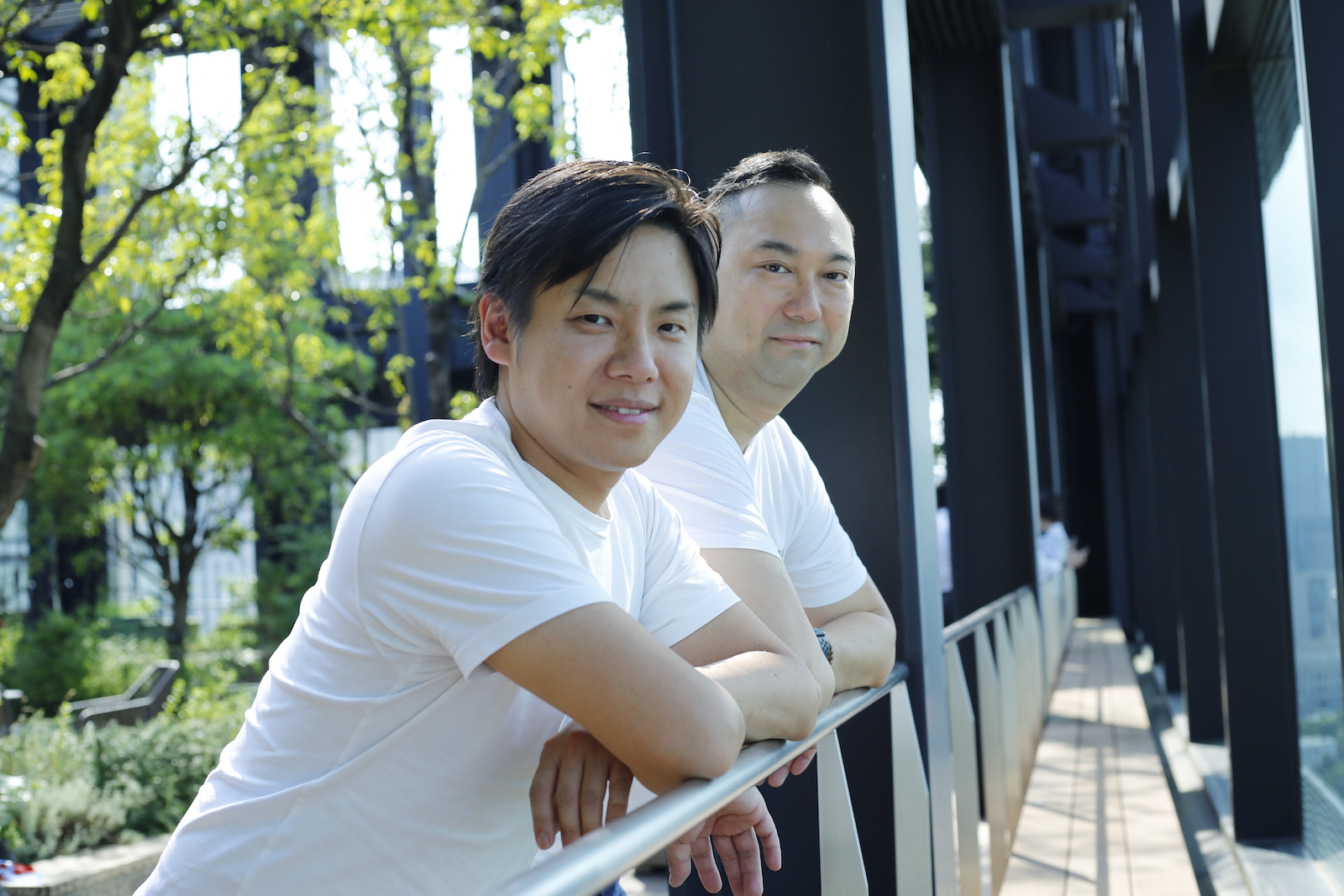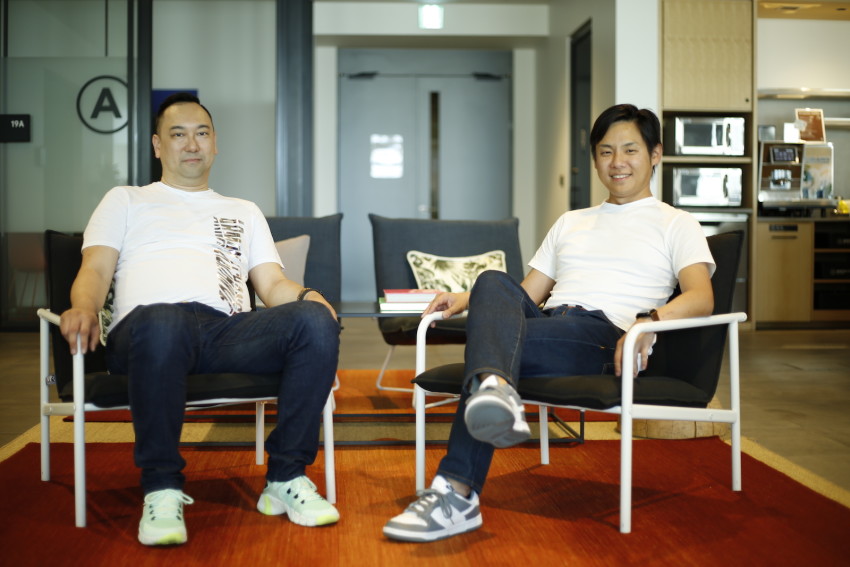When serial entrepreneurs Satoshi Miyagawa and Kenny Lum met in 2020, it wasn’t long before they clicked, realizing that they had more in common than met the eye.
At the heart of what drew them together was a passion for innovation and cross-border collaboration — and a drive to inspire the same in others.
That’s why they created LaunchStarz, a consultancy that helps Japanese startups with a goal to enter the U.S. — and vice-versa, U.S. ventures aiming to enter Japan.
In June, LaunchStarz took a significant step forward toward fulfilling their mission when the consultancy became an innovation partner of Beyond JAPAN.
Beyond JAPAN was launched under the auspices of the Ministry of Economy, Trade and Industry (METI) and the Japan External Trade Organization (JETRO).
The platform, with METI, JETRO and LaunchStarz as its founding partners, will facilitate U.S. market entry for Japanese startups.
Their immediate plan is to introduce such ventures to three cities in the United States: Los Angeles and San Diego, in California, and Austin, in Texas.
In each city, Beyond JAPAN will be facilitated by leading innovation hubs, namely: Plug and Play, in LA; the University of San Diego, in San Diego; and, accelerator Q-Branch, in Austin, TX.
Speaking to Japan Today, Miyagawa and Lum explain the motivation behind LaunchStarz, and share details about their extensive track record in innovation.
Miyagawa: “What we do is something called ‘From Zero to Success.’ We nurture startups entering the United States from Japan.”
Lum: “The core of LaunchStarz is to tap into kokorozashi — “personal mission” — or the passion of entrepreneurship. We want to guide entrepreneurs in that.”
CROSS-BORDER CORE
Superficially, Miyagawa and Lum seem like unlikely business partners: The former began his career in a corporation while the latter started out as an English teacher.
In hindsight, however, their apparently parallel life experiences and career trajectories are a perfect match for their current endeavor, they believe.
Both have lived in multiple countries, worked in corporations and startups, and launched their own ventures — or business units — in Japan and the United States.
Such experiences give them unique perspectives, insights, and hands-on knowhow that they can impart on entrepreneurs seeking to enter the U.S. or Japan, they add.
Miyagawa was born in Japan. In his formative years, he lived in Belgium and the United States, before returning to his native land. He recalls relocating no less than 15 times in his early life.
Lum, meanwhile, was born in Malaysia. While still in childhood, he relocated to Canada, where he spent his formative years. He has since worked and lived in Japan and the United States.

But it’s not just their cross-cultural and cross-border experiences that sets them apart; Miyagawa and Lum have cut their teeth in both corporate and venture firms.
Miyagawa began his career at Tokio Marine Holdings Inc, a multinational insurance company based in Tokyo, where he learned the ins and outs of corporate Japan.
He then obtained a Masters in Management from Stanford’s graduate school of business, where he caught the entrepreneurial bug.
When he returned to Japan, he was elevated to Tokio Marine’s international business development department, gaining invaluable experience working across borders, including in the United Kingdom.
A couple of years later, he jumped ship and entered the venture world, eventually launching the U.S. operations of Japanese education technology (EdTech) startup Life is Tech.
“As a Japanese, it was tough to start a company in the States for multiple reasons: One, was the language barrier. Two, culture. Three, social norms and business etiquette — everything is different, almost 180 degrees different,” he recalls.
Lum’s career path similarly led him across international borders and industries. At first, he taught conversational English in Tokyo, having foregone an opportunity — during a gap year — to attend business school in the United States.
On the back of that experience, he helped to launch an English language school in Japan, which was followed by co-creating a social network service, called LIFEmee.
Lum led LIFEmee to the finals of the startup pitch contest at TechCrunch 50, a global startup contest held in San Francisco in 2009. Technology from LIFEmee was eventually acquired by a large telecoms company in Japan.
But that was just the start of his trailblazing path in startups and corporations. Lum thereafter joined American e-commerce marketplace Groupon Inc. shortly after they launched in Japan.
He not only supported their localization efforts in Japan, where he was one the first non-Japanese in the company, but launched an entire business line before being transferred to their operations in Palo Alto.
In the United States, he transitioned to a software-as-a-service (SaaS) startup, before Amazon.com tapped his skills in new business creation: He helped launch the e-commerce giant’s food delivery service in San Francisco’s Bay Area.
Most recently, before co-founding LaunchStarz, Lum was the CEO of Japan Crate, a startup that was based in San Francisco and Los Angeles, and held directorships, respectively, at travel company Agoda and real estate technology startup Zumper.
“Working with Satoshi is the perfect balance because I’ve done two startups in Japan and one in America, and Satoshi came from corporate Japan and did his startup in America, so we have the perfect balance of failures and successes,” Lum says.
CHALLENGE ACCEPTED
With impressive track records in the corporate and startup world as well as in cross-border business, one can’t help but ask Miyagawa and Lum: What will it take for Japanese ventures to succeed in the United States?
In one sense, the answer is simple: “In startups, there are only two essential things. One, create a product. Two, sell it. That’s it. And, you have to do this quickly,” Miyagawa points out.
But in another sense, innovation is not that simple, especially for Japanese startups — or, indeed, any startup — especially if they have aspirations to go global. Why is that?
Miyagawa and Lum believe that going global is a challenge for Japanese startups because, often, there are a lot of key stepping stones to success that they have difficulty traversing.
One relates to human factors. That is, understanding your market, which includes having a sense of how to do business, culture, etiquette and social norms in your target region, they explain.
How people communicate, whether in conversation or electronically; how pitches are made; how a company is incorporated and organized; what workplace tools are used — all of these differ in some respect when in Japan versus the United States.
And that’s not to mention potential language barriers: Japanese startup founders often don’t speak English (Foreign founders, for that matter, often consider Japan to be a "black box").
“So, this is you — as a Japanese founder — and there are a lot of barriers to success. We want to reduce these barriers as much as possible, so they can have a successful business model and gain access to customers and experts. These are the essential features that they need,” Miyagawa says.
Lum further explains that LaunchStarz will provide hands-on guidance — based on their own experience of success and failure in the U.S. and Japan — and use real-life case-studies that are tailored to each startup or entrepreneur.
LaunchStarz: https://www.launchstarz.com/
Beyond JAPAN: https://www.b4d-jp.com/
© Japan Today















4 Comments
Login to comment
Marc Lowe
This is wonderful news for entrepreneurs and companies looking to cross borders. However, the article is just human interest feel good fluff. There are no numbers. How many companies have they helped? How much money are we talking about? Without these essential details, readers contemplating establishing their businesses in the US or Japan have nothing to go on, really. A follow-up article is in order.
Japantime
So the new meaning of global is just the U.S and Japan.
Michael Machida
The Japanese economy is in for a challenging time so Japanese organizations and startups have to jump ship.
WA4TKG
It seemed to me this is for those wanting to get themselves into the American market, but per usual, good luck getting anything started in Japan.